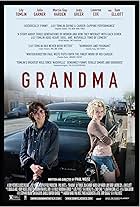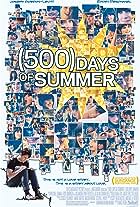grahamclarke
Joined Feb 2003
Welcome to the new profile
We're still working on updating some profile features. To see the badges, ratings breakdowns, and polls for this profile, please go to the previous version.
Ratings128
grahamclarke's rating
Reviews198
grahamclarke's rating
"Congo Crossing" is a fine example of the Universal Studio ethos of the fifties. The powers that be at Universal decreed that films were all about look with content a whole lot less important. Audiences did not come to the cinema to be educated or enlightened, they came to be entranced by great looking charismatic leading actors, lit and costumed to perfection. The screenplay was simply to service the stars. It would take the genius of a Douglas Sirk to transfer Universal's mediocre screenplays into great cinema. Joseph Pevney, the director of "Congo Crossing", was not able to able to perform such a feat and clearly had no such aspiration, but he fared well with "Congo Crossing" and even better with Universal's "Foxfire" and "Female on the Beach".
The studio look included the often hand painted posters that accompanied the film, usually featuring the male lead clutching the female lead (check out the aforementioned films). The aesthetic of many Universal films was meticulously crafted by their superb art direction department headed by Alexander Golitzen and highly skilled cameramen such as Russell Metty. Actors George Nader and Virginia Mayo were blessed with captivating looks as were all the studio's leads, but when well-costumed, beautifully lit and filmed by Metty, you simply can't take your eyes off them. The entire film takes place in the heart of Africa yet Mayo's hair and make-up remain perfect and she appears in a whole range of eye-catching designs, from the shortest of shorts to slinky evening wear. How she managed to pack them all in her suitcase remains a mystery, but who cares. Nader is more appropriately dressed, but even his jungle wear is casually elegant and his hair of course virtually unruffled.
"Congo Crossing" has a totally absurd narrative but Universal works its usual magic and affords an entertaining 85 minutes.
The studio look included the often hand painted posters that accompanied the film, usually featuring the male lead clutching the female lead (check out the aforementioned films). The aesthetic of many Universal films was meticulously crafted by their superb art direction department headed by Alexander Golitzen and highly skilled cameramen such as Russell Metty. Actors George Nader and Virginia Mayo were blessed with captivating looks as were all the studio's leads, but when well-costumed, beautifully lit and filmed by Metty, you simply can't take your eyes off them. The entire film takes place in the heart of Africa yet Mayo's hair and make-up remain perfect and she appears in a whole range of eye-catching designs, from the shortest of shorts to slinky evening wear. How she managed to pack them all in her suitcase remains a mystery, but who cares. Nader is more appropriately dressed, but even his jungle wear is casually elegant and his hair of course virtually unruffled.
"Congo Crossing" has a totally absurd narrative but Universal works its usual magic and affords an entertaining 85 minutes.
"Vanya" is all show and no depth; a specious spectator sport. The fact that is has been so well received says much about the present climate of our culture.
The hallmarks of great acting are subtlety and nuance, when a mere glance, a small gesture or a slight vocal inflection can tell us volumes about a character. Subtlety and nuance have never been Andrew Scott's strong suit. A vanity project such as this egotistical one-man show which allows him free reign to flaunt his undoubted talents, was for me an experience that bordered on excruciating.
Perhaps his status as one of the most prominent actors of his generation is something that prevents directors from curbing his outlandish bag of tricks. His overacting is at times jaw dropping. I don't doubt his talent, but he is in dire need of an authoritative director to harness his irritating mannerisms and guide him towards an intelligent and meaningful performance. Every minute of "Vanya" screams "look what a smart boy I am". Letting him loose in this poorly written adaptation, under the helm of an admiring director, spells disaster.
The very idea of turning Uncle Vanya into a one-man show is pointless, and worse, ludicrous. If you are genuinely interested in "Uncle Vanya" search out the filmed versions with Michael Redgrave, widely considered the greatest of all Vanyas or David Warner in the BBC version. The performances in these versions, both with outstanding casts, exemplify the meaning of subtlety and nuance.
The hallmarks of great acting are subtlety and nuance, when a mere glance, a small gesture or a slight vocal inflection can tell us volumes about a character. Subtlety and nuance have never been Andrew Scott's strong suit. A vanity project such as this egotistical one-man show which allows him free reign to flaunt his undoubted talents, was for me an experience that bordered on excruciating.
Perhaps his status as one of the most prominent actors of his generation is something that prevents directors from curbing his outlandish bag of tricks. His overacting is at times jaw dropping. I don't doubt his talent, but he is in dire need of an authoritative director to harness his irritating mannerisms and guide him towards an intelligent and meaningful performance. Every minute of "Vanya" screams "look what a smart boy I am". Letting him loose in this poorly written adaptation, under the helm of an admiring director, spells disaster.
The very idea of turning Uncle Vanya into a one-man show is pointless, and worse, ludicrous. If you are genuinely interested in "Uncle Vanya" search out the filmed versions with Michael Redgrave, widely considered the greatest of all Vanyas or David Warner in the BBC version. The performances in these versions, both with outstanding casts, exemplify the meaning of subtlety and nuance.
Were a regular movie watcher to dismiss "The Female Animal" as cheap trash, they would not be wrong. However, for movie buffs there's much enjoyment to be had, despite the glaring weaknesses
It's certainly not the plot that holds our interest, nor the dialog, though there are a couple of memorable lines; it's simply the somewhat miscast headliners Hedy Lamarr, George Nader and Jane Powell - whose ages hardly approximate the characters they portray. One needs to have some awareness of their personal lives and careers in order to perceive the added layers of meaning their very presence lends to the film.
Forty-four-year-old Hedy Lamarr still lovely to behold, apparently much aided by various surgeries, was coming to the end of her career, so playing an older movie actress in what seem to be B movies adds much resonance. Her beauty is legendary, but alas not her acting talent which was always a couple of notches below her contemporaries. However she turns in one of her better performances in what would be her last screen role. In the final scene, a nurse tending to her says, "Maybe I shouldn't say this, but I've always thought you were a much better actress than the roles they gave you." It's hardly a line you would expect from the character but clearly something probably Lamarr herself wanted aired. She thanks her and the nurse goes on: "Because the one great thing you have on the screen is believability". She then turns out the light and exits. Hedy rolls over and says, "Believability; I certainly hope so". Hedy's swan song.
George Nader was one of the hunks from the Universal stable. It's widely rumoured that he left Hollywood after being outed by the notorious Confidential magazine in some sort of deal the studios made to save Rock Hudson, his lifelong friend, from the same fate. Some sources claim it was to save Rory Calhoun's career. However in later years Nader emphatically denied all that, though he did say "every month when Confidential came out, our stomachs began to turn. Which of us would be in it?" Whatever the case, he realised he wasn't making much headway in Hollywood and turned to Europe where he enjoyed much success in a series of German films. He was a fairly competent actor and an extremely good-looking one. Physically he was at his very prime at this particular point in his career. He spends much screen time bare-chested, uncharacteristically waxed. Other scenes show him off in elegant evening wear and an extremely tight T-shirt. All in all, his film career was hardly a distinguished one and "The Female Animal" is certainly one of his better moments.
Former MGM star Jane Powell totally discards her effervescent girl-next-door image and plunges into fifties misunderstood daughter a la Rebel Without a Cause, acting out, boozing it up and flinging herself at men. You get the picture. A brave move for Powell, sometimes bordering on the ludicrous.
Jan Sterling in a bit part with some delightful lines also deserves special mention.
What gives "The Female Animal" a certain veneer of class is the work of master cameraman Russel Metty, Douglas Sirks favorite DP. Even someone of lesser talent could hardly go wrong with the likes of Lamarr, Nader and Powell, but Metty, as always, makes them luminous.
Put your critical faculties on hold and join this somewhat odd ride, one I find I enjoy more and more each time I take it.
It's certainly not the plot that holds our interest, nor the dialog, though there are a couple of memorable lines; it's simply the somewhat miscast headliners Hedy Lamarr, George Nader and Jane Powell - whose ages hardly approximate the characters they portray. One needs to have some awareness of their personal lives and careers in order to perceive the added layers of meaning their very presence lends to the film.
Forty-four-year-old Hedy Lamarr still lovely to behold, apparently much aided by various surgeries, was coming to the end of her career, so playing an older movie actress in what seem to be B movies adds much resonance. Her beauty is legendary, but alas not her acting talent which was always a couple of notches below her contemporaries. However she turns in one of her better performances in what would be her last screen role. In the final scene, a nurse tending to her says, "Maybe I shouldn't say this, but I've always thought you were a much better actress than the roles they gave you." It's hardly a line you would expect from the character but clearly something probably Lamarr herself wanted aired. She thanks her and the nurse goes on: "Because the one great thing you have on the screen is believability". She then turns out the light and exits. Hedy rolls over and says, "Believability; I certainly hope so". Hedy's swan song.
George Nader was one of the hunks from the Universal stable. It's widely rumoured that he left Hollywood after being outed by the notorious Confidential magazine in some sort of deal the studios made to save Rock Hudson, his lifelong friend, from the same fate. Some sources claim it was to save Rory Calhoun's career. However in later years Nader emphatically denied all that, though he did say "every month when Confidential came out, our stomachs began to turn. Which of us would be in it?" Whatever the case, he realised he wasn't making much headway in Hollywood and turned to Europe where he enjoyed much success in a series of German films. He was a fairly competent actor and an extremely good-looking one. Physically he was at his very prime at this particular point in his career. He spends much screen time bare-chested, uncharacteristically waxed. Other scenes show him off in elegant evening wear and an extremely tight T-shirt. All in all, his film career was hardly a distinguished one and "The Female Animal" is certainly one of his better moments.
Former MGM star Jane Powell totally discards her effervescent girl-next-door image and plunges into fifties misunderstood daughter a la Rebel Without a Cause, acting out, boozing it up and flinging herself at men. You get the picture. A brave move for Powell, sometimes bordering on the ludicrous.
Jan Sterling in a bit part with some delightful lines also deserves special mention.
What gives "The Female Animal" a certain veneer of class is the work of master cameraman Russel Metty, Douglas Sirks favorite DP. Even someone of lesser talent could hardly go wrong with the likes of Lamarr, Nader and Powell, but Metty, as always, makes them luminous.
Put your critical faculties on hold and join this somewhat odd ride, one I find I enjoy more and more each time I take it.
























